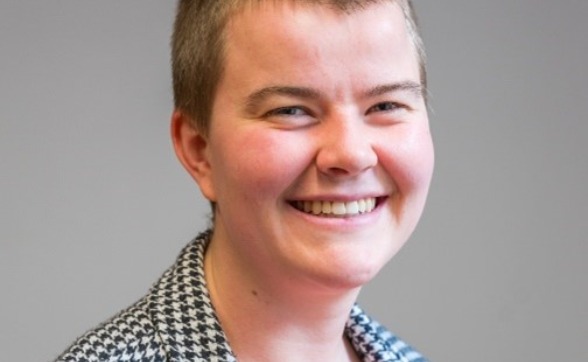Undergraduate
Financial Economics
Events you may be interested in
Show more eventsCareers and further study
This course opens up a world of future study pathways and career opportunities.
Career Pathways
Further Study
Financial Economics graduates may choose to pursue the following further study opportunities.
Master of Economics
Fees and scholarships
Scholarships
Scholarships are available to students from a diverse range of backgrounds, including academic achievement, financial need, educational disadvantage, leadership and community service, artistic or sporting achievements, and being from a rural or remote area.
Cost of living
International Student Fees
Onshore international students are charged an annual course fee, charged per credit point at a rate dependent on the course in which the student is enrolled. Annual course fees are calculated based on an annual study load. Check the handbook to confirm the annual study load for your course.
Find out more about international student tuition fees and visit the fee calculator for the relevant course fees.
Fees are subject to annual indexation.
Scholarships
Scholarships are available to students from a diverse range of backgrounds, including academic achievement, financial need, educational disadvantage, leadership and community service, artistic or sporting achievements, and being from a rural or remote area.
Cost of living
Admission requirements
The University of Western Australia welcomes applications from international and domestic school-leavers. If you’re interested in studying one of these majors, find out the admission details below.
Admission requirements
English competency
English is the language of instruction and assessment at UWA and you will need to meet the English language requirements of the University to be eligible for a place.
Minimum overall IELTS score of 6.5, with no band less than 6.0.
How to apply
Apply through TISC
- Log in to the TISC website
If you’re a Year 12 student studying a WACE course at a WA high school or a pathway program, you are already automatically registered with TISC. - Select your preferences
You can choose up to six preferences when you apply through TISC. You should list your preferences in order from your most desired course onwards; this way you’ll have plenty of options to get into UWA. - Lodging your application
You’re almost there! After answering a few questions, you’ll need to make a declaration about your application. - Application processing fee
Your TISC application is lodged once you’ve completed the payment. For more information on fees and payments, visit the TISC website.
Course details
About the course
The Financial Economics Extended Major is unique to WA and sits within our Bachelor of Economics degree. You’ll learn core microeconomic and macroeconomic principles, as well as develop an understanding of the important role that money and banking play in an economy. This major covers economics, banking in theory and practice, international finance, and how money, banking and financial markets operate.
Throughout the major, you'll gain quantitative data analytic skills using our world-class Trading Room. Through developing skills using software and technology found in large modern financial institutions, you'll be highly valued by employers upon graduation. You'll also have the opportunity to undertake an internship with a private or public organisation, or through an industry-based project unit.
Quick details
- Available in 2024
- Perth (Crawley campus)
- Full-time
- Part-time
- On-campus
- Semester 1, Semester 2
- Undergraduate
- MJD-FINEC
- 3 years (BEc);4 years (BPhil [Hons])
Course Structure
Our undergraduate degrees offer you a broad range of options allowing you to combine subjects in a way that matches your career goals and personal interests.
Why study this course?
- You’ll develop knowledge in a unique combination of economics and finance that focuses specifically on how money, banking and financial markets operate.
- You’ll be taught by global leaders in their field who will provide you with the latest research and knowledge.
- Your learning will be supported by world-class facilities such as our Trading Room, which has the latest software and technology used by all modern financial institutions.
Accreditation



The UWA Business School is accredited by EQUIS and the Association to Advance Collegiate Schools of Business (AACSB), and is a Communicating Signatory to Principles for Responsible Management Education (PRME).
EQUIS and AACSB are the leading business school accreditations in Europe and North America respectively, meaning that your business degree will be recognised by employers around the world.
You'll learn to
- demonstrate comprehensive knowledge of banking, financial and economic theories and applications.
- apply qualitative and quantitative economic techniques to evaluate key information on money, banking and financial issues to inform effective decision-making.
- communicate clearly, effectively and appropriately to a variety of stakeholders across a range of banking, financial and economic contexts.
- demonstrate an awareness of, and sensitivity to a variety of social and economic perspectives.
- apply your theoretical learning to industry-related projects, either through an internship with an organisation, or through an industry-based project in your final year of study.
Why we need more women in economics and finance

If you’re a female considering a career in economics or finance, you could be pursuing more than your dream career. Here’s just a few reasons why.
Your degree options
This major is only available within the Bachelor of Economics or Bachelor of Philosophy (Honours) degrees. This major is an extended major which means you undertake more units in this area.






 Bachelor of Economics
Bachelor of Economics